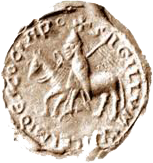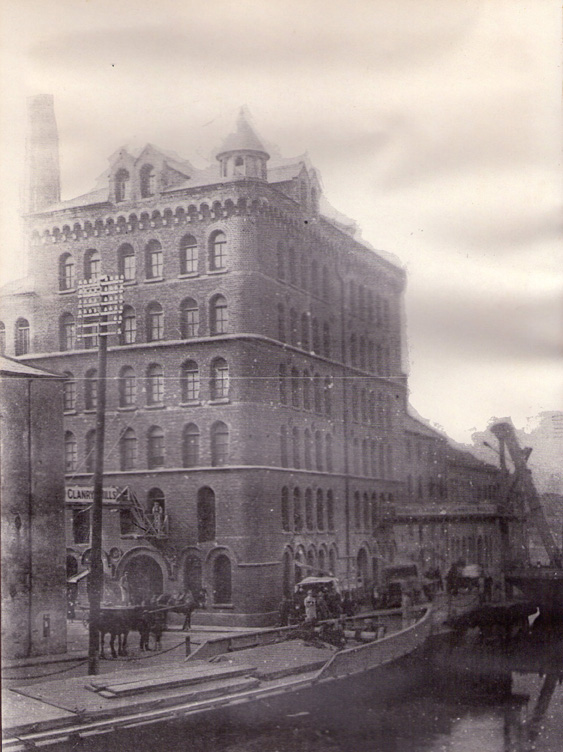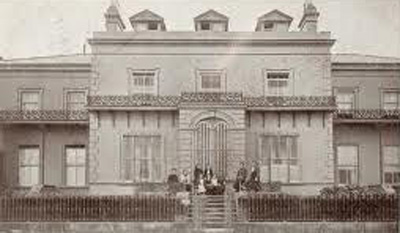The Newry Sinclair family
During the nineteenth century, there were two Sinclair families living in the town of Newry, Co. Down. Both were merchant families, and both played a significant part in the economic growth of the town. Yet they were not related (unless they shared an ancestor many years before). More information can be found about the other Sinclair family here.
Sinclair & Son
William Sinclair first appeared in Newry in 1834 when he set himself up as a meal seller in Water Street. In 1840, he married Ellen Walker, one of the many grandchildren of Thomas Walker, a successful merchant in Richhill, Co. Armagh, some 15 miles from Newry. According to family tradition, the Walkers were descendants of the famous Reverend George Walker, who led the townsfolk in their defence of Derry during the three-month siege by King James II in 1689. George Walker died in 1690 at the Battle of the Boyne, but his descendants continued to live in Co Armagh.
Ellen’s mother was Jane Redmond, the daughter of John (Old Jack) Redmond from another long-established planter family in Co. Armagh, originally from Yorkshire. The Walkers were Church of Ireland, but William was Presbyterian, which meant they could not be married in a church by a Presbyterian minister. Instead, they were married in her brother’s home, Grange House, a few miles south of Richhill.
During the following years, William built up a successful business as a corn miller, taking in his nephew, Abraham Redmond Walker, as a partner. By 1865, though, Walker had left the business and established his own corn mills. William and his son, Abraham Walker Sinclair, continued running the original business as Sinclair & Son on Canal Quay. In 1872, the mill burned down – not uncommon in the years before a town had its own professional fire brigade. Clanrye Mills were rebuilt at a cost of £10,000. After the business closed down Robert Sands purchased the property and continued milling. Today, it is used as an animal feed depot.
Abraham married Mary Margaret Davis, the daughter of Jemima McBride and William Alexander Davis, a well-known doctor in Newry, and Medical Attendant to the Newry Workhouse. Abraham became a magistrate for Co Armagh. They lived at Sugar Island and had eight children, four of whom died young.
On Thursday evening last a number of lads were sliding on the Old Basin, when the ice suddenly cracked, and Master Charles Wilson, son of A. Wilson Esq., went down. He clung as well as he was able to the broken ice, but piece after piece gave way, and his situation became perilous in the extreme. There was an immense crowd on the bank, and great excitement prevailed, but no one seemed disposed to make a practical effort to save young Wilson’s life. Driving reigns and ropes were thrown to him, but he could not lay hold. Just in the nick of time Mr. A. W. Sinclair, T.C., came up and without a moments hesitation, jumped into the water, seized the lad, and brought him to the bank, amidst the applause of the spectators.
By the late 1880s, restrictions on Canadian corn entering Britain had been lifted and Irish corn-milling was suffering badly. Similar problems had been occurring in England where imported flour was one of the main reasons for the closure of many mills. Eric Sinclair, Abraham Walker Sinclair’s grandson, married Norah Brown, a descendant of a family of millers in southern England.
William retired to Warrenpoint and died in 1880. Abraham finally gave up the business in 1891 and moved to Belfast, where he worked for the Flour Merchant Commission. He died in 1908 and Ellen died in 1928.
Corn and Flour Milling in Newry is published by the Mills Archive Trust in 2022.
The impact of grain speculation in the USA was captured in A Corner in Wheat, a 1909 silent movie by D. W. Griffiths (1875-1948), based on The Pit by Frank Norris, published in 1902.


